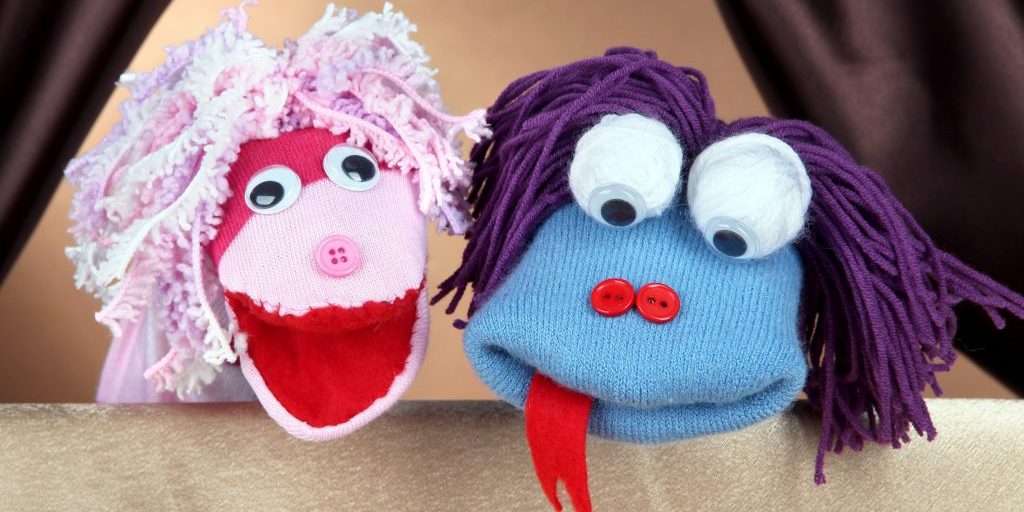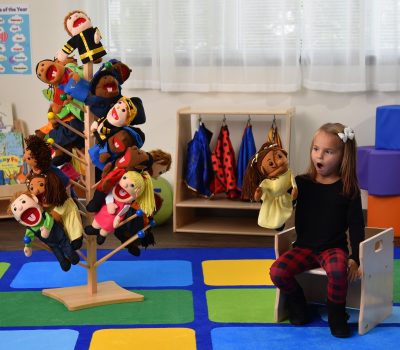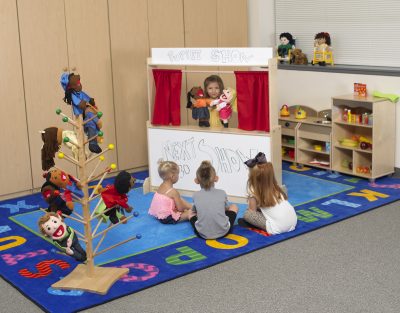
How to Use the Puppet Show Theatre to Teach Empathy

Pictured Here: Diverse Children’s Hand Puppets With Movable Mouths.
If you are committed to inspiring empathy in your kids, the Angeles® Puppet Show Theatre is an effective tool you can use to illustrate empathy during pretend play. Give your kids some guidelines for their next show, then see what they create. You might direct your kids to craft a puppet show revolving around a scenario. Tell your kids a story about your childhood. Can you recall a time when you skinned your knee or were injured at school? After relating your story, ask your kids some questions to initiate a deeper conversation. You can also read a short story to give your kids ideas. Aesops Fables are perfect for this kind of exercise. Each short story has a moral attached to it which you can use to illustrate a point.
After reading “The Fox and the Stork” (also known as “The Fox and the Crane” – numbered 426 in the Perry Index) to your kids, you might ask them the following questions:
- Has anyone ever given you a birthday present they wanted, but you didn’t? How did it make you feel?
- What can we do to make sure we think about our friends’ needs and what they want first?
- How did the stork feel when he couldn’t eat the Fox’s dinner? Do you think the Fox meant to be mean or forgot about the stork’s long beak?
- What about the stork’s trick?
“The Ape and the Fox” is another effective, yet lesser known, fable. (Numbered 81 in the Perry Index, “The Ape and the Fox” is often referred to as “The Dancing Monkeys” since historians believe its origins can be traced back to an ancient story from the Orient.)
Ask your kids questions such as:
- What do you think is meant by ‘human nature’? What do we all have in common as people?
- There is a saying “actions speak louder than words”. What does that mean?
- Have you ever seen kids at school say hurtful things to each other? How can you help a friend feel better if they are hurting?

Our Puppet Show Theatre features a dry erase board and marquee and storage shelves.
Fables are not the only children’s books with moral lessons attached to them. Dr. Seuss’s classic book about The Sneetches is one you can use for teaching empathy.
You could ask your kids the following questions:
- Do we always need to follow what other people are doing? Or is it important to choose our own way in life?
- How can we celebrate each other’s differences?
- Can you name 10 qualities you have that make you a unique and lovable individual?
Let Your Actions Speak Louder Than Words
Giving direction to your kids’ puppet shows will transform them into fun learning activities with a purpose. Illustrating empathy and other morals during pretend play activities is awesome, but puppet shows reach the next level when principles are reinforced with ACTION. As Patch the Pirate stated in his famous song Hippocritter, you should always “let your walk talk louder than your talk talks.”
Ideas for action after Covid-19 is over:
- Take your child to visit a friend or neighbor in need and walk their dog, take out the trash or whatever would be helpful!
- Round up the neighborhood kids and perform the puppet show your kids have been practicing. Then invite the other children to grab a puppet and share in the fun.
- Take your puppet show on the road to the local children’s hospital or nursing home.
Solidify the importance of actively showing empathy towards people of all ages. As a secondary benefit, your kids might learn to appreciate their lives, family members, and general health for the first time.